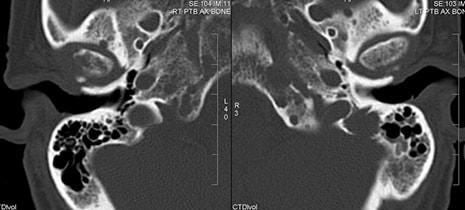Non-traditional therapy found useful in eliminating multiple myeloma cancer in mice preclinical trials.
Orange County, CA - February 22nd 2017 - Multiple myeloma is the second most common blood cancer and though manageable through treatments, has no cure. The disease causes cancerous plasma cells to collect in the patient’s bone marrow. Plasma cells are a type of white blood cell that produce antibodies to maintain the immune system. When affected by the cancer, plasma cells become myeloma cells that produce M proteins, abnormal antibodies with no beneficial aspects in the immune system; instead they multiply until impeding upon naturally forming and functioning antibodies.
While new research has significantly increased life expectancy of those diagnosed, mortality rates remain fairly high due to relapse. This can occur through reinfusion of cancerous cells during a stem cell transplant or from growth after chemotherapy treatments. To improve the quality of life of those diagnosed, researchers from the Medical University of South Carolina recently completed a study testing myxoma virus (MYXV) as a viable treatment for multiple myeloma (MM), a hematological cancer.
Eric C. Bartee, Ph.D., an assistant professor of Microbiology and Immunology at MUSC, has been working with the myxoma virus for several years. The MYXV, though non-infectious to humans, is a virus native to rabbits that suppresses the immune system. Bartee has been treating MM in cell cultures with the virus, but was previously able to show the virus was able to eradicate the MM in human stem cells prior to reinfusion.

In the study, Bartee and his team took previous findings to the next stage by assessing the benefits of MYXV outside of transplantation of stem cells. Using a mouse model, specimens were injected with MYXV directly. The treatment of MM with MYXV diminished tumor burden and decreased disease progression by 66%. In 25% of cases, the disease was completely eliminated with no evidence of recurrence in the mice. The treatment led to a gain of CD8+ ¬T cells within bone marrow, indicative of a strong response against the foray of tumors.
Touching on his team’s research, Bartee commented on the survival rate saying, “You're not just moving the curve to the right a little bit; you're bending the survival curve up and you're really fundamentally changing how you can look at cancer treatment."
This research shows potential of one day curing the disease; however the study needs to achieve a higher response rate when used in human clinical trials. An advantage to the novel treatment is the myeloma has difficulty developing resistance to the MYXV. Though tumors often adapt themselves after therapy like chemo to become resistant, MYXV has been evolving for thousands of years and developed responses to such changes. Currently there is no exhortatory evidence hinting towards myeloma forming any type of resistance.
To read more on their research click here.
Contact Ampronix:

Email: info@ampronix.com
International Sales: +1 949-273-8000
Domestic Sales: 1800-400-7972 for US and Canada
Follow Us:
Share This Article:
View our Product Catalog Online Here
About Ampronix
Ampronix is a renowned authorized master distributor of the medical industry's top brands as well as a world-class manufacturer of innovative technology. Since 1982, Ampronix has been dedicated to meeting the growing needs of the medical community with its extensive product knowledge, outstanding service, and state-of-the-art repair facility. Ampronix prides itself on its ability to offer tailored, one-stop solutions at a faster and more cost-effective rate than other manufacturers. Ampronix is an ISO & ANSI/ESD certified facility. To learn more go here.

Non-traditional therapy found useful in eliminating multiple myeloma cancer in mice preclinical trials. Orange County, CA – February 22nd 2017 – Multiple myeloma is the second most common blood cancer and though manageable through treatments, has no cure. The disease causes cancerous plasma cells to collect in the patient’s bone marrow. Plasma cells are a […]



